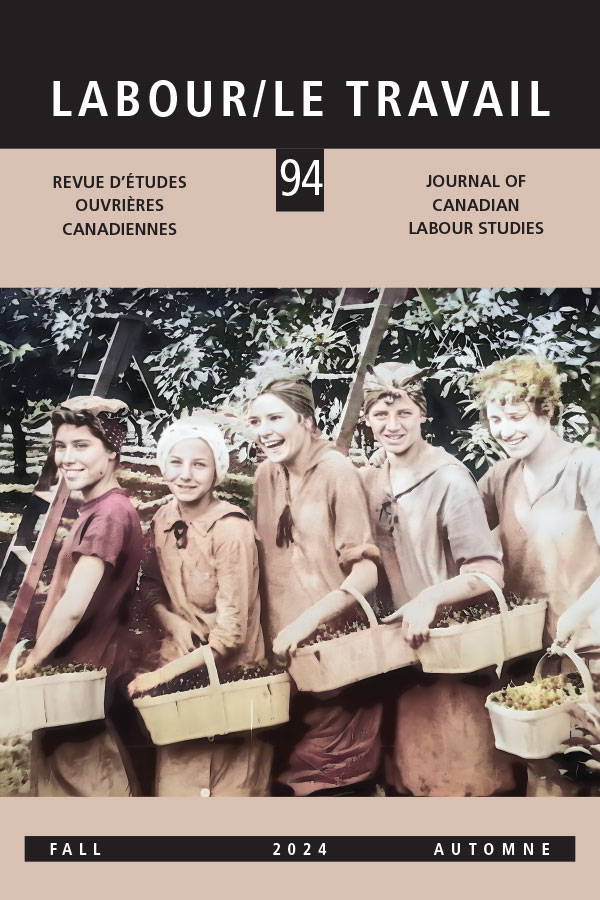« Les grands manufacturiers qui font gagner le pain à tant de pauvres gens doivent trouver protection devant les tribunaux »: condition ouvrière, salariat et justice civile au Québec, 1850–1914
Published 2024-11-14
Keywords
- economic liberalism,
- manual workers,
- working conditions,
- civil law,
- jurisprudence
- wages,
- mechanics’ liens,
- employer’s authority,
- damages,
- seizures ...More
How to Cite
Abstract
Quebec jurisprudence in civil matters constitutes a valuable source for the history of work and employment. It reveals a vast range of conflicts experienced among workers during the transition to industrial capitalism and the way in which the judicial system proceeded to regulate such conflicts. Working with 128 reported cases, the author examines the fate of lawsuits filed by – or against – ordinary workers, factory workers, day labourers and carters, workers directly affected by the levy of surplus value generated by physical labor and through the free play of power relations in the economic world. Six categories of disputes mark this jurisprudence: divisions established by law among manual labour (notably under the legislation on masters and servants); failure to pay wages; the difficult implementation of worker privileges; challenges to employer discipline; the imposition of damages during work; and, finally, the hazards of seizures carried out against workers. Many indicators betray the incapacity of bringing together civil law and civil justice, as instruments of social regulation, in order to take precautions against the profound fragility of wage-earning status in the 19th century and the beginning of the 20th century.
